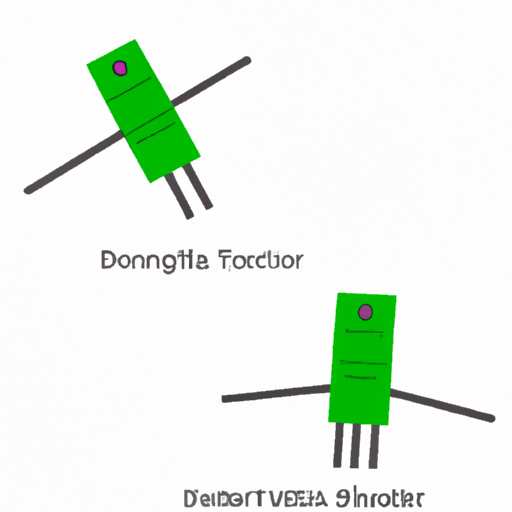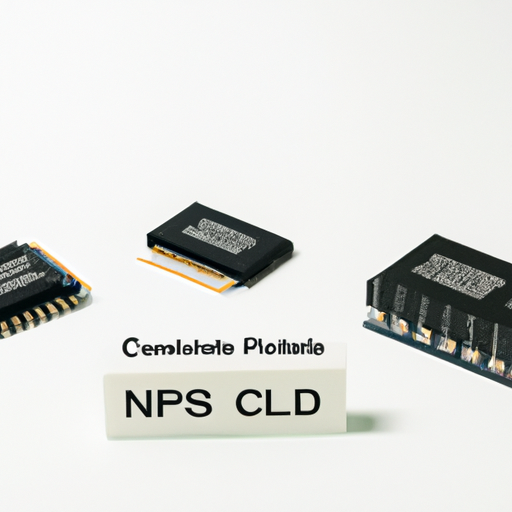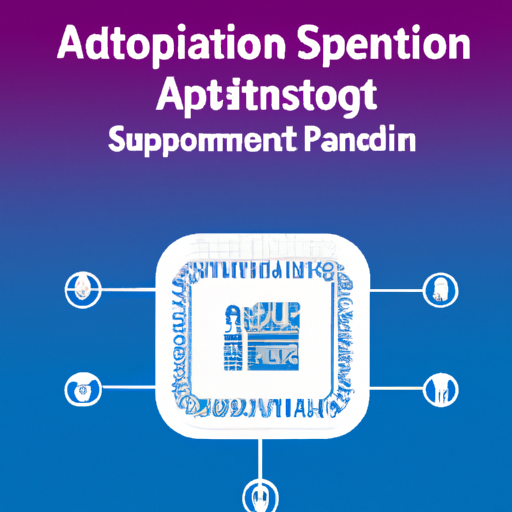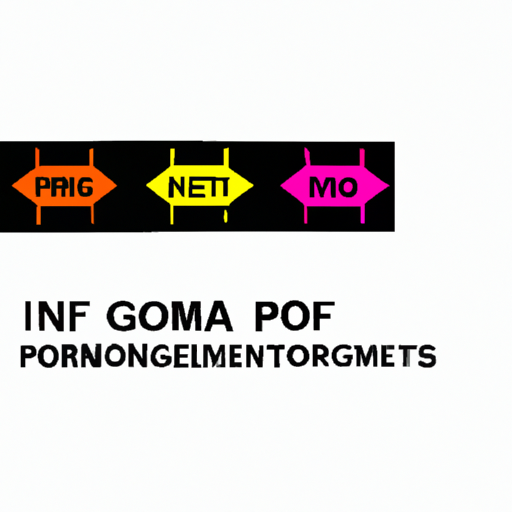


S6008L DC-DC Switching Controller: Core Functional Technologies and Application Development CasesThe S6008L DC-DC switching controller is engineered for efficient power conversion across a variety of applications. Below, we delve into its core functional technologies and highlight several application development cases that demonstrate its effectiveness.
Core Functional Technologies1. High Efficiency2. Wide Input Voltage Range3. Adjustable Output Voltage4. Integrated Protection Features5. Compact Design6. Frequency Synchronization7. Soft Start Functionality1. Battery Management Systems (BMS)2. Industrial Automation3. Telecommunications4. Consumer Electronics5. Renewable Energy Systems6. LED Drivers Application Development Cases ConclusionThe S6008L DC-DC switching controller represents a significant advancement in power management technology, offering high efficiency, flexibility, and reliability across a wide range of applications. Its integration into sectors such as automotive, industrial, telecommunications, consumer electronics, and renewable energy underscores its versatility and effectiveness in modern power conversion solutions. As technology continues to advance, controllers like the S6008L will be pivotal in enabling efficient and sustainable power management systems, driving innovation across various industries.

Multivibrators OverviewMultivibrators are essential electronic circuits that generate different types of waveforms, primarily square waves. They are categorized into three main types, each serving distinct functions in electronic applications:
1. Astable Multivibrator: This configuration continuously oscillates between its two unstable states, producing a square wave output without the need for external triggering. It is commonly used in applications such as clock pulse generation, LED flashers, and tone generation. 2. Monostable Multivibrator: This type has one stable state and produces a single output pulse when triggered. It is often utilized in applications like timers, pulse width modulation (PWM), and debounce circuits for switches.
3. Bistable Multivibrator: Also known as a flip-flop, this configuration has two stable states and can store binary information. It is widely used in digital circuits, memory storage, and data processing applications.
Core Functional Technology1. Transistor-Based Multivibrators: Traditional multivibrators are constructed using bipolar junction transistors (BJTs) or field-effect transistors (FETs). The feedback mechanism between the transistors determines the circuit's state, allowing for oscillation or pulse generation.
2. Integrated Circuit (IC) Multivibrators: Modern multivibrators are often implemented as integrated circuits, such as the popular 555 timer IC. This IC can be configured for both astable and monostable operation, simplifying design and reducing the number of discrete components required.
3. Digital Multivibrators: In digital electronics, multivibrators can be created using logic gates (e.g., NAND or NOR gates) to form flip-flops and other sequential circuits. These digital implementations are crucial for modern computing and data storage.
Application Development Cases1. Timing Applications: Multivibrators are extensively used in timing circuits. For instance, the 555 timer IC in monostable mode can generate precise time delays for applications such as LED blinking, where the timing of the on/off cycle is critical.
2. Frequency Generators: Astable multivibrators are employed to produce clock signals for microcontrollers and digital circuits. They are vital in applications requiring regular timing signals, such as in communication systems and frequency modulation.
3. Pulse Width Modulation (PWM): Monostable multivibrators can generate PWM signals, which are essential for controlling the speed of motors or the brightness of LEDs. This technique is widely used in power management applications, such as in electric vehicles and lighting systems.
4. Data Storage: Bistable multivibrators (flip-flops) are fundamental components in digital memory systems. They are used in registers, counters, and memory cells to store binary data, playing a crucial role in computer architecture and digital signal processing.
5. Signal Conditioning: Multivibrators can be utilized to clean up noisy signals by converting them into clean square waves. This application is particularly useful in sensor systems, where accurate signal representation is necessary for reliable data interpretation.
ConclusionMultivibrators are versatile components in both analog and digital electronics, with applications ranging from simple timing circuits to complex data storage systems. Their ability to generate and manipulate waveforms makes them essential in a wide array of electronic devices. Understanding their core technologies and applications can lead to innovative designs and solutions across various fields of engineering, enhancing the functionality and efficiency of electronic systems.

Application Development in Drivers, Receivers, and Transceivers for 1N5238B-T: Key Technologies and Success StoriesThe 1N5238B-T is a widely used Zener diode that serves critical functions in voltage regulation and protection across various electronic applications. Its integration into drivers, receivers, and transceivers showcases its versatility and effectiveness in enhancing electronic system performance. Below, we explore the key technologies associated with the 1N5238B-T and highlight notable success stories across different industries.
Key Technologies1. Voltage Regulation2. Signal Clamping3. Transient Voltage Suppression (TVS)4. Biasing and Reference Circuits5. Low-Noise Applications1. Telecommunications2. Consumer Electronics3. Automotive Applications4. Industrial Automation5. Medical Devices Success Stories ConclusionThe 1N5238B-T Zener diode is a vital component in the development of drivers, receivers, and transceivers across multiple industries. Its key technologies, including voltage regulation, signal clamping, and transient voltage suppression, significantly contribute to the reliability and performance of electronic systems. The success stories in telecommunications, consumer electronics, automotive applications, industrial automation, and medical devices underscore its versatility and importance in modern electronic design. As technology continues to evolve, the role of the 1N5238B-T in enhancing electronic performance will remain critical.

Certainly! Here’s a more detailed exploration of encoders, decoders, and converters, focusing on their core functional technologies and application development cases.
Encoders1. Rotary Encoders: Measure the angular position of a rotating shaft. They can be incremental (providing relative position) or absolute (providing a unique position value).2. Linear Encoders: Measure linear displacement, often using optical or magnetic methods to provide high precision.3. Digital Encoders: Convert data into a specific coded format, such as binary, Gray code, or other encoding schemes.1. Binary Decoders: Convert binary input signals into a single active output line.2. BCD Decoders: Convert Binary-Coded Decimal inputs into decimal outputs, often used in display applications.3. Address Decoders: Select specific memory locations in microcontrollers or memory chips based on input addresses.1. Analog-to-Digital Converters (ADC): Convert continuous analog signals into discrete digital data, enabling processing by digital systems.2. Digital-to-Analog Converters (DAC): Convert digital data back into analog signals for output to devices like speakers or displays.3. Level Shifters: Adjust signal voltage levels to ensure compatibility between components operating at different voltage levels.Robotics: In robotic arms, rotary encoders provide feedback on joint angles, enabling precise control and movement. For example, a robotic arm in a manufacturing line uses encoders to ensure accurate positioning for assembly tasks.Robotics: In robotic arms, rotary encoders provide feedback on joint angles, enabling precise control and movement. For example, a robotic arm in a manufacturing line uses encoders to ensure accurate positioning for assembly tasks.CNC Machines: Linear encoders are critical in CNC (Computer Numerical Control) machines, where they track the position of the cutting tool, ensuring high precision in machining operations.CNC Machines: Linear encoders are critical in CNC (Computer Numerical Control) machines, where they track the position of the cutting tool, ensuring high precision in machining operations.Consumer Electronics: Digital encoders are used in devices like remote controls, where they convert button presses into digital signals that can be processed by microcontrollers.Consumer Electronics: Digital encoders are used in devices like remote controls, where they convert button presses into digital signals that can be processed by microcontrollers.Microcontroller Systems: Address decoders are used in microcontrollers to access specific memory locations, allowing for efficient data management and retrieval in embedded systems.Microcontroller Systems: Address decoders are used in microcontrollers to access specific memory locations, allowing for efficient data management and retrieval in embedded systems.Digital Displays: BCD decoders are utilized in digital clocks and calculators to convert binary inputs into human-readable decimal outputs, enhancing user interaction.Digital Displays: BCD decoders are utilized in digital clocks and calculators to convert binary inputs into human-readable decimal outputs, enhancing user interaction.Data Communication: Binary decoders are employed in communication systems to decode received signals, ensuring accurate data interpretation and processing.Data Communication: Binary decoders are employed in communication systems to decode received signals, ensuring accurate data interpretation and processing.Audio Systems: DACs are crucial in audio playback devices, converting digital audio files into analog signals that can be amplified and played through speakers, enhancing sound quality.Audio Systems: DACs are crucial in audio playback devices, converting digital audio files into analog signals that can be amplified and played through speakers, enhancing sound quality.Sensor Applications: ADCs are widely used in sensor systems, such as temperature sensors, where they convert analog voltage signals into digital data for processing by microcontrollers, enabling real-time monitoring and control.Sensor Applications: ADCs are widely used in sensor systems, such as temperature sensors, where they convert analog voltage signals into digital data for processing by microcontrollers, enabling real-time monitoring and control.IoT Devices: Level shifters are essential in IoT applications, allowing communication between components that operate at different voltage levels, ensuring reliable data transmission in smart devices.IoT Devices: Level shifters are essential in IoT applications, allowing communication between components that operate at different voltage levels, ensuring reliable data transmission in smart devices. Decoders Converters ConclusionEncoders, decoders, and converters are fundamental components in modern electronic systems, enabling the effective processing, transmission, and interpretation of data across various applications. Their integration enhances functionality, accuracy, and efficiency, making them indispensable in fields such as industrial automation, consumer electronics, and the Internet of Things (IoT). As technology advances, the development of more sophisticated and efficient encoders, decoders, and converters will continue to drive innovation and improve system performance across diverse applications.

Application Development in Latches for 1N5236B-T: Key Technologies and Success StoriesThe 1N5236B-T is a Zener diode that plays a crucial role in various electronic applications, particularly in voltage regulation and protection. While it is not a latch itself, it can be integrated into circuits that utilize latches and other digital components. Below are key technologies and success stories that highlight the integration of the 1N5236B-T in application development.
Key Technologies1. Voltage Regulation2. Overvoltage Protection3. Signal Conditioning4. Noise Filtering5. Temperature Compensation1. Consumer Electronics2. Automotive Applications3. Industrial Automation4. Telecommunications5. Medical Devices Success Stories ConclusionThe 1N5236B-T Zener diode, while not a latch itself, plays a vital role in enhancing the performance and reliability of circuits that include latches and other digital components. By leveraging the properties of Zener diodes, developers can create robust electronic systems across various industries, ensuring stable operation, protection from voltage spikes, and improved signal integrity. This integration is crucial for the advancement of technology in consumer electronics, automotive systems, industrial automation, telecommunications, and medical devices.

Application Development in Buffers, Drivers, Receivers, and Transceivers for 1N5232B-T: Key Technologies and Success StoriesThe 1N5232B-T Zener diode is a versatile component widely used in electronic circuits for voltage regulation and protection. Its integration with buffers, drivers, receivers, and transceivers enhances the performance and reliability of various applications. Below, we explore key technologies and notable success stories that highlight the importance of the 1N5232B-T in modern electronic systems.
Key Technologies1. Voltage Regulation2. Signal Conditioning3. Data Transmission4. Noise Filtering5. Protection Circuits1. Consumer Electronics2. Automotive Applications3. Industrial Automation4. Telecommunications5. IoT Devices Success Stories ConclusionThe integration of the 1N5232B-T Zener diode with buffers, drivers, receivers, and transceivers is crucial for enhancing the performance and reliability of electronic systems across various industries. By providing stable voltage regulation and protection against overvoltage conditions, the 1N5232B-T contributes significantly to the success of numerous applications, from consumer electronics to industrial automation and telecommunications. As technology continues to evolve, the role of such components will remain vital in developing robust and efficient electronic systems, paving the way for future innovations.

Application Development in Telecom for 1N5230B-T: Key Technologies and Success StoriesThe 1N5230B-T is a Zener diode that plays a significant role in the telecommunications sector, particularly in applications requiring voltage regulation, protection, and signal conditioning. Below, we explore the key technologies that leverage the capabilities of the 1N5230B-T and highlight some success stories that illustrate its impact in the telecom industry.
Key Technologies1. Voltage Regulation2. Surge Protection3. Signal Conditioning4. Power Supply Design5. Temperature Compensation6. Integrated Circuits1. Telecom Infrastructure2. Mobile Devices3. Network Equipment4. Fiber Optic Communication5. IoT Devices Success Stories ConclusionThe 1N5230B-T Zener diode is a critical component in the telecommunications industry, enhancing the reliability and efficiency of various applications. By leveraging its voltage regulation and protection capabilities, telecom companies can improve infrastructure, boost device performance, and provide a better user experience. As technology continues to advance, the role of Zener diodes like the 1N5230B-T will likely expand, leading to further innovations and success stories in the telecom sector.

Application Development in Analog to Digital Converters (ADC) for 1N4148-T: Key Technologies and Success StoriesThe 1N4148 is a versatile silicon switching diode known for its fast switching speed and reliability. While it is not an Analog to Digital Converter (ADC) itself, it plays a significant role in ADC circuits, particularly in signal conditioning, protection, and interfacing. Below, we explore key technologies and success stories that highlight the application development involving ADCs and the 1N4148 diode.
Key Technologies1. Signal Conditioning2. Sample-and-Hold Circuits3. Noise Filtering4. Protection Circuits5. Analog Front-End (AFE) Design1. Consumer Electronics2. Industrial Automation3. Medical Devices4. Automotive Applications5. IoT Devices Success Stories ConclusionWhile the 1N4148 diode is not an ADC, its role in signal conditioning, protection, and interfacing makes it a valuable component in ADC applications. Its reliability and performance have contributed to the success of various electronic devices across multiple industries, from consumer electronics to medical devices and industrial automation. As technology continues to evolve, the integration of components like the 1N4148 in ADC circuits will remain crucial for achieving high performance and reliability in electronic systems. The continued innovation in ADC technology, coupled with the robust characteristics of the 1N4148, will pave the way for more advanced applications in the future.

Overview of Linear Voltage Regulators and Low Drop-Out (LDO) RegulatorsLinear Voltage Regulators are critical components in electronic circuits, ensuring a stable output voltage despite variations in input voltage or load conditions. Among these, Low Drop-Out (LDO) Regulators are particularly advantageous when the input voltage is only slightly higher than the desired output voltage. This feature makes LDOs ideal for battery-powered devices and applications where efficiency is paramount.
Core Functional Technology1. Basic Operation2. Key Parameters3. Noise Performance4. Thermal Performance1. Battery-Powered Devices2. RF and Communication Systems3. Microcontrollers and DSPs4. Consumer Electronics5. Industrial Applications Application Development Cases ConclusionLinear Voltage Regulators, particularly Low Drop-Out (LDO) Regulators, are indispensable in modern electronic design. Their ability to provide stable output voltage with low dropout and noise makes them suitable for a diverse range of applications, from consumer electronics to industrial systems. As technology continues to evolve, the demand for efficient and reliable voltage regulation will only increase, solidifying LDOs as a fundamental component in electronic circuit design. For engineers and developers, a thorough understanding of the core technologies and application cases of LDOs is crucial for optimizing performance and efficiency in their designs. By leveraging the unique advantages of LDOs, designers can create more reliable, efficient, and compact electronic systems.

CPLDs (Complex Programmable Logic Devices): Core Functional Technologies, Articles, and Application Development CasesCPLDs are essential components in digital circuit design, providing a flexible and efficient means to implement various logic functions. Below is a detailed overview of their core functional technologies, relevant articles, and notable application development cases.
Core Functional Technology of CPLDs1. Architecture2. Programming Technology3. Non-Volatility4. I/O Flexibility5. Low Power Consumption1. "Understanding CPLDs: A Comprehensive Guide"2. "CPLD vs. FPGA: Choosing the Right Device for Your Application"3. "Designing with CPLDs: Best Practices and Tips"1. Digital Signal Processing (DSP)2. Interface Protocols3. Control Systems4. Consumer Electronics5. Automotive Applications Articles on CPLDs Application Development Cases ConclusionCPLDs are versatile and powerful tools in digital design, offering a balance of flexibility, performance, and ease of use. Their applications span various industries, making them invaluable for engineers and developers. By leveraging the core technologies and understanding practical applications, designers can effectively utilize CPLDs in their projects, driving innovation and efficiency in digital systems.

Application Development in Microprocessors for 1N4002-T: Key Technologies and Success StoriesThe 1N4002-T is a widely used silicon rectifier diode, part of the 1N400x series, known for its reliability and versatility in rectification tasks. Its integration with microprocessors and microcontrollers opens up a range of applications across various industries. Below, we explore key technologies, design considerations, and notable success stories that highlight the use of the 1N4002-T in application development.
Key Technologies1. Microcontroller Integration2. Power Management ICs3. Signal Processing4. Embedded Systems5. Simulation and Modeling Tools1. Forward Voltage Drop2. Reverse Voltage Rating3. Thermal Management4. PCB Layout1. Consumer Electronics2. Automotive Applications3. Renewable Energy Systems4. Industrial Automation5. Home Appliances Design Considerations Success Stories ConclusionThe 1N4002-T diode is a fundamental component in numerous applications involving microprocessors and electronic circuits. Its reliability, ease of integration, and effectiveness in rectification make it a staple in many designs. As technology continues to advance, the applications of the 1N4002-T are expected to expand, particularly in emerging fields such as renewable energy, automotive systems, and smart home devices. The ongoing development and innovation in microprocessor technology will further enhance the capabilities and applications of the 1N4002-T, solidifying its role in modern electronics.

Application Development in Comparators for 1N4001-T: Key Technologies and Success StoriesThe 1N4001 diode is a staple in electronic design, known for its reliability in rectifying applications. When paired with comparators, it can enhance circuit performance in various applications. Below, we explore the key technologies that facilitate this integration and highlight notable success stories.
Key Technologies1. Comparator Circuits2. Voltage Reference3. Microcontroller Integration4. Feedback Mechanisms5. Hysteresis1. Power Supply Design2. Battery Management Systems3. Overcurrent Protection4. Signal Conditioning5. LED Drivers Success Stories ConclusionThe integration of comparators with the 1N4001 diode has led to numerous successful applications across various industries, including power management, battery systems, and signal processing. By leveraging key technologies such as dedicated comparator ICs, feedback mechanisms, and microcontroller integration, designers can create robust and efficient circuits that enhance the performance of the 1N4001 diode in real-world applications. As technology continues to evolve, further innovations in this area are likely to emerge, leading to even more successful applications. The ongoing development in this field promises to enhance the capabilities of electronic systems, making them more efficient and reliable.

The CFR-25JB-52-18R designation appears to be a specific model or product code, possibly related to supervisory control systems or industrial automation. While I don't have specific information on that model, I can provide a more detailed overview of core functional technologies and application development cases relevant to supervisory systems, which may align with the capabilities of such a system.
Core Functional Technologies in Supervisory Systems1. Human-Machine Interface (HMI):2. Supervisory Control and Data Acquisition (SCADA):3. Data Analytics and Machine Learning:4. Industrial Internet of Things (IIoT):5. Cloud Computing:6. Cybersecurity Measures:1. Energy Management Systems:2. Remote Monitoring Solutions:3. Quality Control Systems:4. Workforce Management Tools:5. Incident Management Systems: Effective Application Development Cases ConclusionThe integration of core technologies such as HMI, SCADA, IIoT, and data analytics is crucial for the effectiveness of supervisory systems. By leveraging these technologies, organizations can enhance operational efficiency, improve safety, and drive innovation. If you have specific details about the CFR-25JB-52-18R or its context, I can provide more tailored information or insights.
































